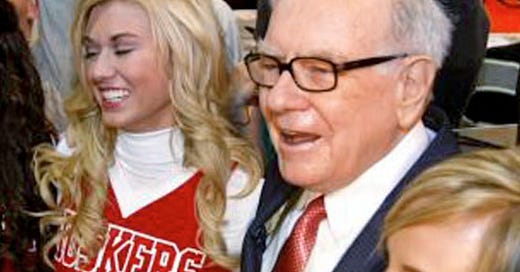Bullish on Berkshire; Japan’s Big Shift; Good Morning Vietnam!
Trust Fukuyama; Joseph Kennedy and the Shoeshine Boy
Today at a Glance:
· One Strategy: Bullish on Berkshire
· One Big Shift: Sunrise in Japan
· One Market: Good Morning, Vietnam
· One Lesson: Trust Fukuyama
· One Bubble Indicator: Joseph Kennedy’s Shoeshine Boy
One Strategy
Bullish on Berkshire
Shares of Berkshire Hathaway closed at a record high of $362.58.
This marked its first new…



